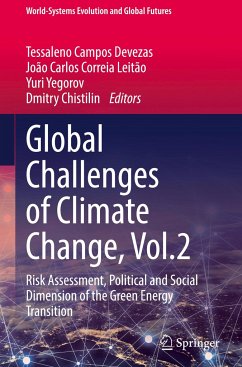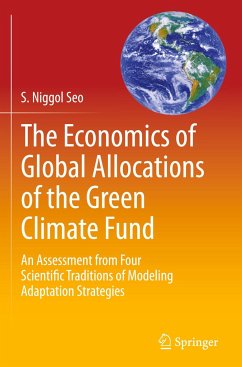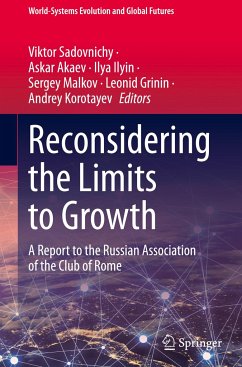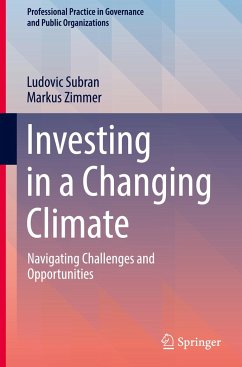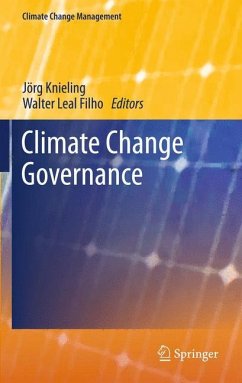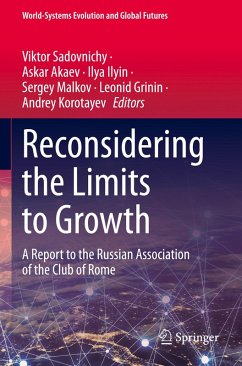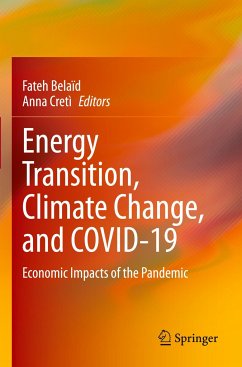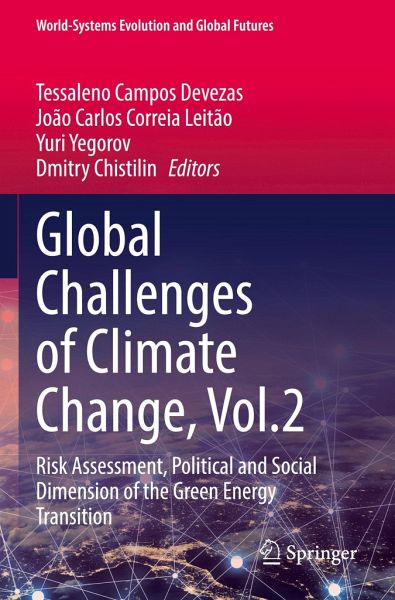
Global Challenges of Climate Change, Vol.2
Risk Assessment, Political and Social Dimension of the Green Energy Transition
Herausgegeben: Devezas, Tessaleno Campos; Leitão, João Carlos Correia; Yegorov, Yuri; Chistilin, Dmitry
Versandkostenfrei!
Versandfertig in 6-10 Tagen
136,99 €
inkl. MwSt.

PAYBACK Punkte
68 °P sammeln!
This two-volume book offers a broad range of discussions on the immense challenge of climate change, one confronting every country on the planet and forcing them to find a path towards a sustainable future that will not have disastrous consequences in relation to our chances of survival. It also presents a snapshot of the status quo, which reflects all the decisions and measures taken to date. Analyzing the consequences of the steps that will shape our future, the two volumes also reflect on important decisions at a global level that have already been taken. This second volume on risks assessm...
This two-volume book offers a broad range of discussions on the immense challenge of climate change, one confronting every country on the planet and forcing them to find a path towards a sustainable future that will not have disastrous consequences in relation to our chances of survival. It also presents a snapshot of the status quo, which reflects all the decisions and measures taken to date. Analyzing the consequences of the steps that will shape our future, the two volumes also reflect on important decisions at a global level that have already been taken.
This second volume on risks assessment and the political and social dimension of the green energy transition is structured into 14 chapters. International renowned scholars discuss the inherent risks that arise in consequence of the transition to the intensive use of low carbon energy sources and global warming, risks related to food and water security, as well as risks of social and political conflicts. They further examine the dependence on individual countries' industrial structures and on their socio-economic development level as challenges to climate change solutions and to the global energy policy agenda.
This book is a must-read for scholars, researchers and students, as well as policymakers interested in a better understanding of climate change, present scenarios, and alternative solutions and measures.
This second volume on risks assessment and the political and social dimension of the green energy transition is structured into 14 chapters. International renowned scholars discuss the inherent risks that arise in consequence of the transition to the intensive use of low carbon energy sources and global warming, risks related to food and water security, as well as risks of social and political conflicts. They further examine the dependence on individual countries' industrial structures and on their socio-economic development level as challenges to climate change solutions and to the global energy policy agenda.
This book is a must-read for scholars, researchers and students, as well as policymakers interested in a better understanding of climate change, present scenarios, and alternative solutions and measures.



